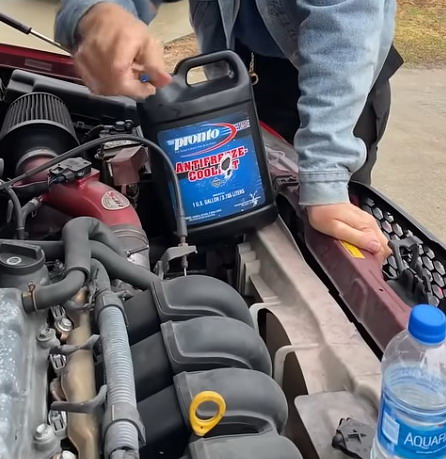TECH

Are the new gas generators dangerous too? - New allegations about Takata airbags
The airbag drama about the automotive supplier Takata has long been considered the largest recall campaign in industrial history. And not just in the automotive sector, but in general. In the USA alone, according to the traffic safety authority NHTSA, more than 41 million cars from 19 manufacturers were called into the workshops between 2013 and the end of 2019. Around 63 million airbags and 56 million gas generators were replaced. But now a US lawyer claims that there are still many millions of cars with unsafe Takata airbags on the road. But how is that possible?
The problem is the ammonium nitrate
The airbag scandal was triggered by the gas generators. Takata used ammonium nitrate in it. So the chemical that caused the huge explosion in Beirut. Faulty gas generators could dampen the ammonium nitrate, which can lead to two extreme reactions: Either the airbag is inflated with insufficient pressure and does not protect properly. Or it explodes suddenly and so violently that metal splinters can be thrown through the interior and pose a danger to the occupants. It has been linked to 25 deaths and around 300 injuries worldwide. In the course of the recall.
Takata did not replace the defective gas generators with ones with a different propellant - for example with the much more expensive guanidine nitrate, which is used by the competition. For cost reasons, the automotive supplier added a desiccant to the ammonium nitrate in the new generation of gas generators, which is supposed to prevent the build-up of moisture. There are currently around 30 million cars on the road with these parts. In addition, there are around twelve million vehicles that, according to the NHTSA, have not even been converted to date.
"Killer Airbags": a book about the Takata scandal
This is exactly what Jerry Cox denounces. The US attorney, who once dealt with the airbag problem on behalf of Takata, has now written a book about it. Its title: "Killer Airbags: The Deadly Secret Automakers Don't Want You to Know". In it, he not only publishes his worrying figures and theses, but also raises them the behavior of Takata, the automakers it supplied and the US authorities to the rank of a conspiracy.
Cox claims that the NHTSA has confirmed that the new Takata inflators are safe without even having examined them thoroughly. "This all happened in the Secret, without any involvement of independent engineers", Autoblog quotes the lawyer. The reason is probably that they want to comply with an ultimatum from the US administration, which in 2015 demanded that the safety of the retrofitted airbag systems be proven by the end of 2019 otherwise the 30 million converted cars would have to be brought back to the workshops.
Takata: First fine, then bankruptcy
According to Cox, however, there are considerable amounts Doubts about the safety of the new gas generators - which is why there are still many "ticking time bombs" on the streets. He criticizes both the behavior of the government and authorities who waved through Takata's cheap solution, as well as that of the car manufacturers who continue to allow the installation of what he sees as dangerous gas generators. Even in the car trade, behavior is not questioned and the car owners are ultimately left alone with the problem.
Takata pleaded guilty to customer fraud in 2017. After a fine (in a settlement they agreed on a billion dollars, the equivalent of around 850 million euros), the supplier went bankrupt. The Takata remnants were then taken over by the Chinese-American company Key Safety Systems (KSS) for 1.6 billion dollars. The supplier now operates as Joyson Safety Systems.
Autonews

Nenhum comentário:
Postar um comentário